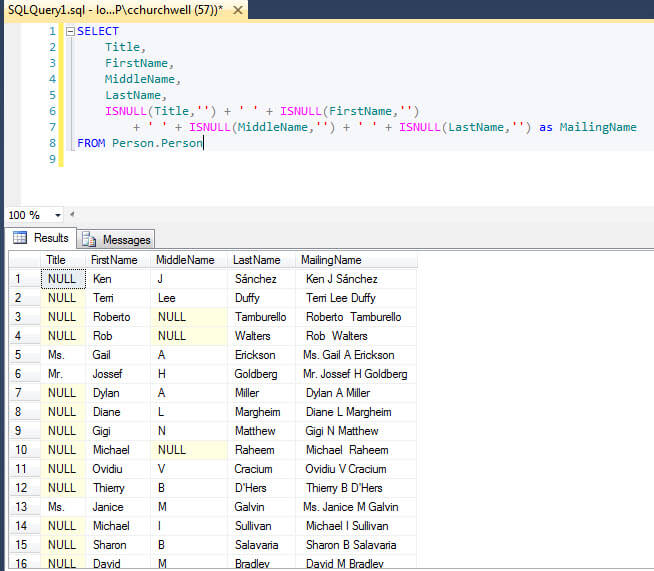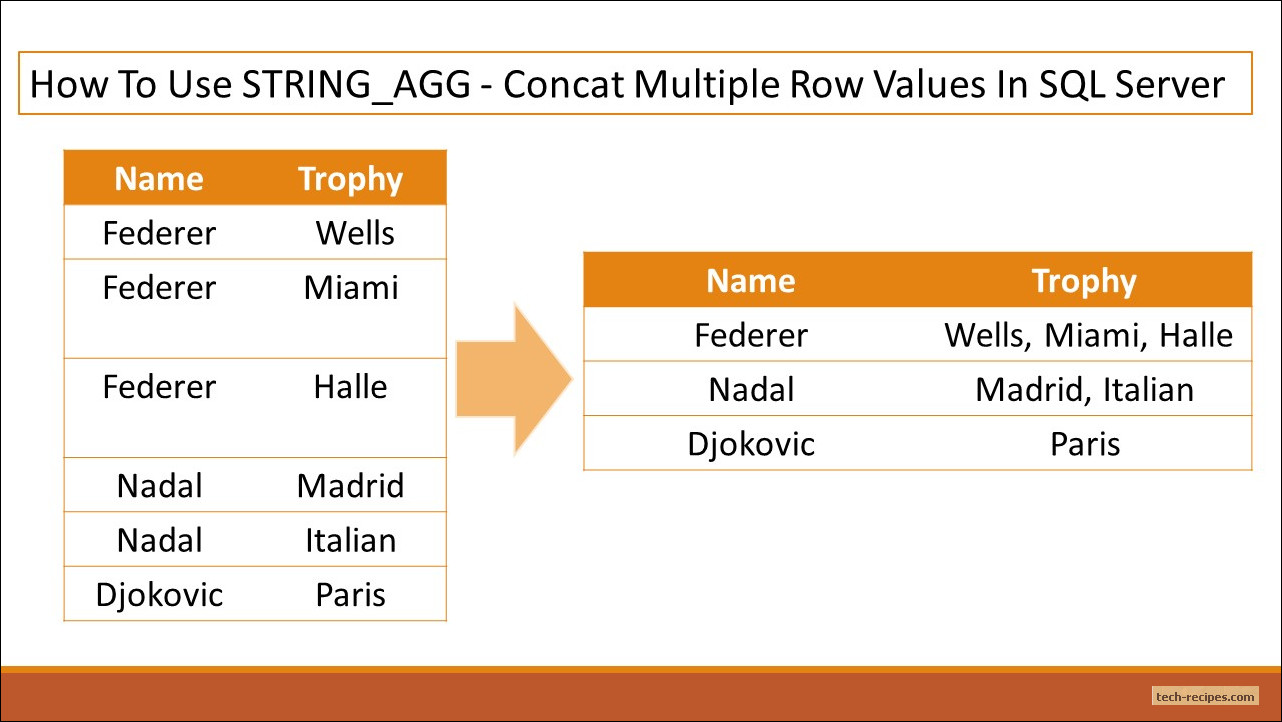

We can even concatenate the values stored inside the variables and column values. The execution of the above query statement gives the following output as NULL because even a single NULL parameter can result in the output string being NULL: We will try concatenating “Welcome”, “To “, “EDUCBA” and NULL parameters using the following query – SELECT CONCAT("Welcome", "To ", "EDUCBA ", NULL) Let us try concatenating the strings with a NULL value as one of its parameters in the Concat function. The execution of the above query statement gives the following output: For this, we will use the following query statement – SELECT CONCAT("EDUCBA", "IS A GREAT ", "PLATFORM ", "TO EXPAND ", "YOUR HORIZONS ", "OF LEARNING") AS "Final String" Now, we will concatenate the string values “EDUCBA”, “IS A GREAT “, “PLATFORM “, “TO EXPAND “, “YOUR HORIZONS” and “OF LEARNING” using the Concat function in MySQL. We can observe from the output that an error is raised, saying that an incorrect number of parameters were supplied to the Concat function. The execution of the above query statement gives the following output – We will execute the following query statement – SELECT CONCAT() As the comments indicate, this should not be used as a substitute for proper sanitisation, as per the example given.Let us first try to execute the MySQL Concat function without passing any parameters and see the output which is arisen. In the special case where you may want to store your apostrophes using their HTML entity references, PHP has the htmlspecialchars() function which will convert them to '. $stmt->bindParam(':note', $input_str, PDO::PARAM_STR) $sql = "INSERT INTO `table` (`note`) VALUES (:note)" sanitise it before writing to the DB (assumes PDO) Here's an example of using prepared statements and bound parameters in PHP: $input_str = "Here's a string with some apostrophes (')" There are a couple of ways to do this, and you might want to read about SQL injection too.

Possibly off-topic, but maybe you came here looking for a way to sanitise text input from an HTML form, so that when a user inputs the apostrophe character, it doesn't throw an error when you try to write the text to an SQL-based table in a DB. You don't give much information about your constraints. Now if you also want to add choice of language, choice of SQL database and its non-standard quirks, and choice of query framework to the equation, then you might end up with a different choice. That says to me that using a doubled single-quote character is a better overall and long-term choice than using a backslash to escape the single-quote. However, use of \' creates security risks. The preferred, SQL-standard way to represent a quote mark is by doubling it ( '') but PostgreSQL has historically also accepted \'.

This controls whether a quote mark can be represented by \' in a string literal. I think the Postgres note on the backslash_quote (string) parameter is informative: Special Character Escape Sequences looks pretty similar.) Special Character Escape Sequences, and the current version is 5.6 - but the current Table 8.1. (Also, you linked to the MySQL 5.0 version of Table 8.1. It also says,Ī “ '” inside a string quoted with “ '” may be written as “ ''”.

The MySQL documentation you cite actually says a little bit more than you mention.


 0 kommentar(er)
0 kommentar(er)
